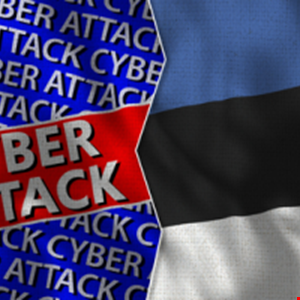- Why I recommend this OnePlus phone over the S25 Ultra - especially at this new low price
- I replaced my laptop with Microsoft's 12-inch Surface Pro for weeks - here's my buying advice now
- This palm recognition smart lock doubles as a video doorbell (and has no monthly fees)
- Samsung is giving these Galaxy phones a big One UI upgrade - here's which models qualify
- 7 MagSafe accessories that I recommend every iPhone user should have
Estonia Repels Biggest Cyber-Attack Since 2007

The Estonian government has revealed that the country was on the receiving end of the “most extensive” DDoS attacks in 15 years this week after angering Moscow.
The former Soviet state reportedly removed a Red Army monument from Tallin square this week, while a Soviet-era tank was removed in the eastern city of Narva. The government has pledged to take down hundreds of such monuments by the end of the year following Russia’s invasion of Ukraine.
In response, pro-Russian cybercrime group Killnet has reportedly claimed responsibility for launching a series of DDoS attacks against the websites of public and private sector organizations.
Estonian government CIO, Luukas Ilves, took to Twitter to dismiss the group’s claims that more than 200 sites had been floored.
“The attacks were ineffective. E-Estonia is up and running. Services were not disrupted. With some brief and minor exceptions, websites remained fully available throughout the day. The attack has gone largely unnoticed in Estonia,” he said.
“As Government CIO, I slept well.”
Interestingly, reports suggest that the DDoS attempts came alongside a fake news blitz from Russian media suggesting Soviet war graves were being destroyed by the Estonian government. This apparently resulted in rioting by ethnic Russians in the country.
The cyber-attacks on Estonia in 2007 are often described as a watershed moment in offensive nation state activity.
The campaign lasted for weeks, severely disrupting the country’s e-government services and other sectors including banking and media. Those attacks were also precipitated by the removal of a memorial to the Soviet Red Army.
However, the incident also spurred the government to double down on cybersecurity, and now it is regarded as having one of the strongest defensive postures of any global government.
The country is ranked third in the ITU Global Cybersecurity Index 2020 and has a 17 percentage point lead over the European average according to the National Cyber Security Index (NCSI).

